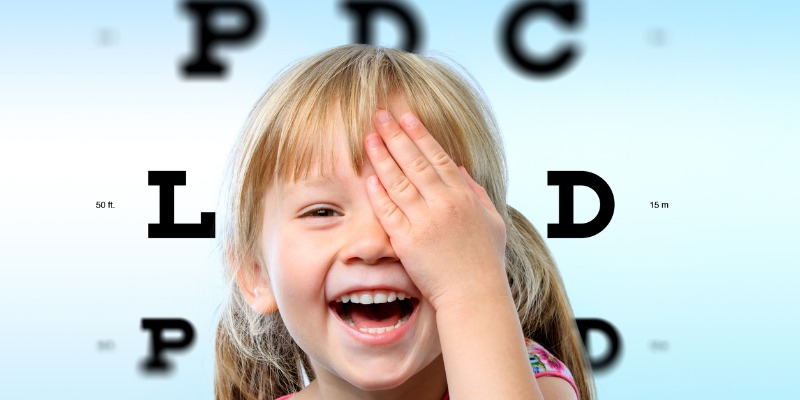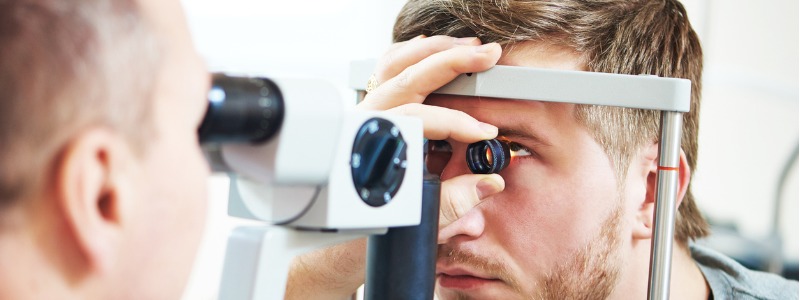In the grand tapestry of sensory experiences that define our daily lives, vision holds a place of unparalleled importance. It’s through our eyes that we perceive colours, shapes, and movements, allowing us to interact with the world and the people in it. Given the critical role of vision in our quality of life, regular eye exams emerge not just as a routine medical recommendation, but as a vital practice for maintaining optimal eye health.

Recommended Frequency of Eye Exams
- Children should have their vision tested before they enter preschool. Visual development is crucial at this stage, and early detection of issues can prevent future problems.
- Adults should have their eyes examined at least every two years. For those over 40, or those who have a higher risk of eye issues, exams should be annual.
- Seniors aged 65 and older should have annual exams to catch age-related conditions early.
For individuals with specific risk factors such as a family history of eye disease, diabetes, high blood pressure, or those experiencing noticeable vision changes, more frequent exams may be necessary.
Detection of Eye Conditions and Diseases
Comprehensive eye exams can uncover early signs of serious eye conditions like glaucoma, cataracts, and age-related macular degeneration before they progress. Early detection often means more effective treatment, potentially saving your sight.
Correcting Vision Issues
Beyond detecting diseases, eye exams are crucial for identifying changes in vision, correcting refractive errors with glasses or contact lenses. Conditions such as myopia (nearsightedness), hyperopia (farsightedness), and astigmatism are common and easily correctable, but first, they must be diagnosed.
Link Between Eye Health and Overall Health
Eye exams do more than just assess your vision; they can also reveal signs of systemic health issues like diabetes and high blood pressure. These conditions can lead to eye problems if left untreated, making eye exams a critical component of your overall health monitoring.
The Role of Technology in Modern Eye Exams
Thanks to technological advancements, modern eye exams are more comfortable, efficient, and accurate. Tools like digital retinal imaging and optical coherence tomography (OCT) provide a detailed view of the eye’s structure, enabling early detection and treatment.
What to Expect During a Comprehensive Eye Exam
- Vision Tests: To determine the sharpness of your vision.
- Eye Pressure Tests: Especially important for glaucoma screening.
- Eye Movement Testing: To evaluate how well your eyes work together.
- Detailed Examination of the Eye: Using specialised equipment to inspect the front and back parts of your eyes.

Preparing for Your Eye Exam: Tips for a Smooth Experience
- List Symptoms or Issues: Note any vision problems you’ve been experiencing.
- Know Your Family Eye Health History: Inform your doctor about hereditary eye conditions.
- Bring Your Current Eyewear: Helps in assessing whether your prescription is still effective.
- List of Medications: Include all medications you’re taking as some can affect vision.
- Bring Sunglasses for After: Protect your eyes from discomfort or glare post-exam.
- Consider Your Vision Insurance: Know what services are covered and any out-of-pocket costs.
- Arrive Early: Fill out any necessary paperwork without feeling rushed.
The Benefits of Early Detection of Eye Conditions
The benefits of early detection of eye conditions cannot be overstated. When eye diseases are identified in their initial stages, treatment can be significantly more effective, potentially preventing the progression of the disease or even restoring vision. Early intervention can halt further vision loss in diseases like glaucoma, while conditions such as cataracts can be managed more efficiently, ensuring a quicker return to daily activities.
Common Misconceptions About Eye Exams
- Misconception 1: “If I can see clearly, I don’t need an eye exam.”
- Misconception 2: “Eye exams are only necessary for older adults.”
- Misconception 3: “Reading in low light or sitting too close to the TV can damage my eyes.”
- Misconception 4: “Eye exams are inconvenient and time-consuming.”
This is a common misconception because vision clarity is just one aspect of eye health. Regular eye exams can detect hidden vision problems, eye diseases, and other health issues before they become more serious. Eye professionals can assess your overall eye health and provide preventive care.
Eye exams are essential for all age groups, not just older adults. Children need eye exams to ensure proper vision development and academic performance. Adults can benefit from regular screenings to update prescriptions and check for early signs of eye conditions that could affect their quality of life as they age.
While reading in low light or sitting close to the TV might cause eye strain or fatigue, it does not cause permanent damage to the eyes. However, maintaining good lighting and taking regular breaks can help minimize discomfort and support overall eye health.
Although some may perceive eye exams as inconvenient, many Melbourne’s optometrists and ophthalmologists offer flexible scheduling to accommodate busy lifestyles. Eye exams typically take less than an hour and are a vital part of maintaining overall health, making the time investment minimal compared to the potential health benefits.
Taking Action for Your Eye Health
Despite these compelling reasons for regular eye check-ups, many of us postpone or neglect to schedule them, especially if we’re not experiencing noticeable vision problems. However, eye health goes beyond just clear vision. It’s about preventive care, catching potential issues before they become problematic, and ensuring our eyesight can keep up with our life’s demands and joys.
As you finish reading, take this essential message with you: scheduling and attending regular eye exams is a simple yet impactful way to take charge of your visual and overall well-being. If it’s been a while since your last visit to the optometrist or if you’ve never had an eye exam, now is the perfect time to take action.
Schedule your next eye exam today. It’s a small step that could make a big difference in your life. Don’t wait until you notice a problem. Ensure your world remains vibrant and clear for years to come by making eye health a priority.
